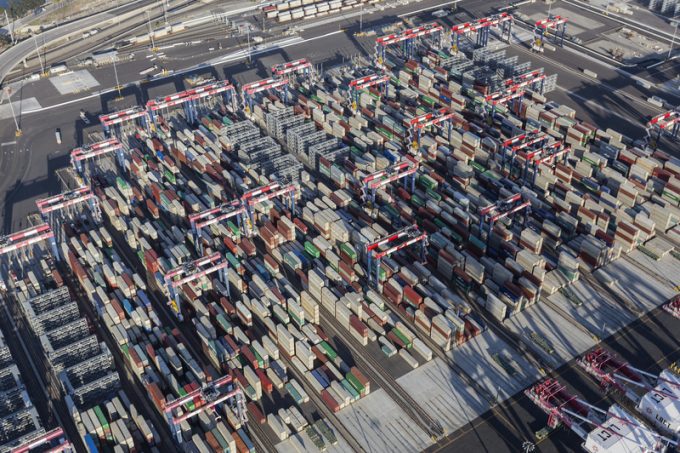Chinese New Year rush and threat of tariffs leaves box ports congested
The Chinese factory rush to get goods out before the new year holiday, and the ...

Reports of hundreds of thousands of containers stranded around the world have begun to flood into The Loadstar’s newsdesk, and there is every expectation they will continue as social lockdowns limit ports ability to clear landed boxes, and a slew of blank sailings leave export containers stuck on quays.
In the following guest post, insurance expert Jose Guerrero looks at how marine cargo insurance relates to the Covid-19 pandemic; whether this insurance will help sellers/buyers on their current and future claims; ...
Volcanic disruption at Anchorage could hit transpacific airfreight operations
Macron calls for ‘suspension’ – CMA CGM's $20bn US investment in doubt
Forwarders stay cool as US 'liberation day' tariffs threaten 'global trade war'
Shippers snap up airfreight capacity to US ahead of tariff deadline
De minimis exemption on shipments from China to the US will end in May
Tighter EU import requirements proving 'a challenge' for forwarders
Looming Trump tariffs will create 'a bureaucratic monster' for Customs

Comment on this article
Jose Guerrero
July 13, 2020 at 1:04 amIn my article, it states that marine cargo policy is unambiguous from the start that it covers only physical loss, and therefore, business interruption loss is not covered. The article also states that covered losses are built-in in the price model, and with insurers paying non-covered losses, it risks destabilization of the insurance industry.
The article (with the URL link) written by Hannah Smith, titled “Insurer wins in one of the first U.S. Covid-19 coverage rulings,” is very timely in bringing this big BI decision to our attention. The fundamental question in this case is whether there was a “direct physical loss of or damage to property.” I enjoyed watching the ruling from the bench via Zoom, and the entire proceeding is available on YouTube – done “virtually”. The above coverage trigger was hammered down by the defense, Henry Emrich, and expanded by Judge Joyce Draganchuk. The result is that Judge Draganchuk granted the defendant’s motion for summary disposition.